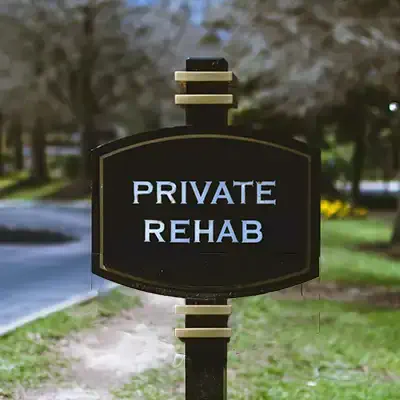Searching for Treatment in Vancouver
Searching for an Inpatient Rehab in Vancouver may require some knowledge of drug and alcohol rehabs and the procedures they have for admission.
We researched the steps to follow for Vancouver residents to get admitted to residential treatment centers.
Below are some insights into this subject. You may find some new information, while you may already know some other bits. We hope this article sheds some light on what to do and how to do it.
One thing is certain: entering this type of treatment does have certain requirements for acceptance.

Inpatient Application Steps and Services in the Public Sector
The application steps for residential treatment may vary depending on the facility one is entering. Facilities accept referrals from outside of Fraser Health, and these are from:
- Clinicians for severe care, including referral from inpatient social workers
- Professionals dealing in withdrawal management
- Outpatient counsellors/concurrent disorder therapists working in Mental Health and Substance Use clinics
Referrals directly to the Fraser Health system will include these services:
- Time-limited treatment in structured, substance-free, live-in environments.
- Bed-based treatment service support includes the physical, emotional, social, intellectual, and other needs of each person who enters treatment in a short or long-term live-in setting.
These programs are suited for individuals with moderate to severe drug or alcohol issues who may have one or more of the following situations:
- Have increasing severity of substance use.
- Tried outpatient or walk-in substance use services without success.
- Have little or no social support, including unemployment or under-employment.
- Have significant family, relationship, or work challenges.
- Has multiple relapsing events following substance use treatment.
1 888-488-8434
Get immediate
help for addiction.
Public Access Inpatient Rehab Vancouver
In the public-sponsored services, you will find three types of bed-based treatment services and supports:
Short-term transitional access to recovery (STAR)
- Short-term transitional access to recovery beds offers support to clients requiring secondary detox symptoms following the completion of an acute detox. Individuals who lack safe housing would benefit from additional health and social or group supports.
Stabilization and transitional living residences (STLR)
- STLR offer programs that are for clients with moderate to severe substance use issues. Who have completed withdrawal management and waiting to enter an intensive long-term care services program. Or persons reintegrating back into the community and require low-to-moderate services and support in a safe structured environment, free of alcohol and illicit drugs
Intensive residential treatment (IRT)
- IRT offers an intensive program for people with addiction issues within a long-term setting. Backed by qualified and trained healthcare providers, the program includes group-based and individual educational and counselling sessions, meals, and recreational, social, and life-skills-building opportunities.
Fees and Funding Inpatient Rehab
- Bed-based treatment services and support are not totally public-funded. They can charge clients a daily fee, which may be partly covered by income assistance, employment insurance, or other funding assistance programs, though one must qualify.
- Community addiction services counsellors can assist individuals applying for financial support.
- You can visit www.myselfserve.gov.bc.ca to apply for financial assistance to attend a Substance Use Bed-Based Treatment

Private Inpatient Treatment, Another Option
For private inpatient treatment, the application process involves contacting the facility directly and discussing your needs and their services. The intake counsellor will start any necessary paperwork if the facility meets your requirements.
The facility may also conduct an assessment to ensure they can provide the appropriate level of care. Private inpatient treatment mostly occurs in a privately owned space that can accommodate a few or many people at a time. The person stays at the facility and participates in therapeutic sessions during the day and evening. The activity schedule varies from one facility to the next.
These private rehabs may be a good option if:
- You’ve tried outpatient treatment and did not get the expected results
- You did a public inpatient program but went back to using once released.
- You have other physical or mental health problems and require special care
- Situations at your work, home, or local make it hard to stay away from drugs or alcohol.
- You don’t have time to wait for a public bed and have financial support for treatment.
- You expect a higher service level and require a more personalized treatment approach.
- You want or need more one-on-one counselling.
Inpatient or residential programs can deliver short—and long-term programs. A longer-term program implies staying at the facility for two or more months, depending on your recovery needs.
After this type of treatment, most professionals will advise you to seek support groups or communities.

Pricing for Private Residential Treatments in Vancouver
Pricing for this treatment option can vary from center to center. It depends on the service required, the length of stay, and amenities. Some facilities will accept insurance coverage, so check with your insurance provider for details.
One can expect to pay between $10,000 and $14,000 for a month of private inpatient treatment. Most facilities offer a sliding scale for longer periods to accommodate additional months. A treatment center may require a 10—to 20% deposit to hold a bed. In all cases, verifying with your chosen facility and their policy on the subject is best. You can also explore funding options or insurance coverage with them.
Inpatient Rehab Vancouver: Why Choose Private?
One should consider private inpatient rehab in Vancouver for a loved one because it gives direct access to immediate care. You can call one day and enter the next day or two. You will find a more individualized treatment schedule to suit your needs.
Most private sector treatment approaches are CBT (Cognitive Behavior Therapy) oriented. Most programs are holistic in nature, which means they address all aspects of substance abuse for the person. We recommend comparing two or three facilities before deciding on one. Verifying their reviews is also a very good starting point.
Source:
Fraser Health Bed-Based Treatment
HealthLink – Inpatient and Outpatient Treatments

Marc Bernard
Author,
Addiction Field Specialist,
Referral & Consultation Counsellor, Ethics in Practice – NAADAC
Reviewed by Susan. Chubbs Drug and Alcohol Treatment Specialist

